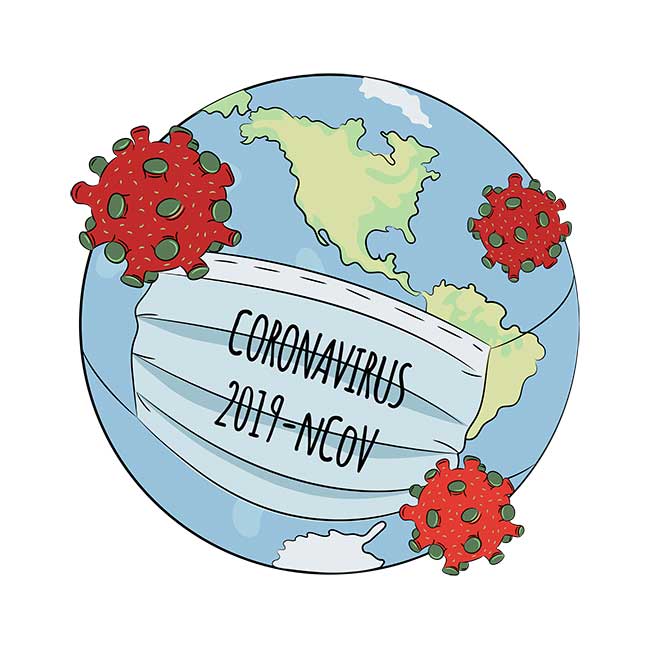Your Association Could Be Impacted by the Coronavirus. Here’s 4 Tips You Need to Know.
While public health officials and public policy experts continue to monitor the spread of the coronavirus (COVID-19), one thing is clear: The illness could have a serious impact on conferences, meetings, and entire associations. Travel restrictions, quarantines, and simple fear could create the need for contingency planning and potential long-term impacts to your association.
As the scenario evolves, it is important that association leadership and their association management company (AMC) staff be on the same page. In addition to monitoring updates from World Health Organization, Centers for Disease Control & Prevention, and local authorities as appropriate, here are a few things every association board member should know.
- Preparation and knowledge are essential.
On February 25, the Center for Disease Control and Prevention (CDC) released a statement warning the public of the potential for severe disruptions to daily life. The CDC has also issued guidelines for large events.
What does that mean for your association?
It depends on the nature and industry of your organization. An association of coastal healthcare professionals and a midwestern association of accountants will be impacted in very different ways.
However, many associations will feel a short-term impact from travel restrictions, the hesitancy of the public to travel, and the potential for lost staff time due to the illness. Even if the impact on your daily life is minimal or nonexistent, your association will likely see some effect from the virus.
- Understand your AMC’s capacity to handle the illness and keep lines of communication open.
Ultimately, the most technologically sophisticated association still depends on people. If key personnel on your AMC’s team become ill, work on critical projects could slow or stop—especially if your association staff lacks the ability to work remotely.
How do you know whether your AMC has the capacity to allow staff to work remotely?
Ask.
While SBI Association Management staff do have the capacity and technology to work remotely, if necessary, other AMC’s may not have that same ability.
Association board leaders and AMC staff must communicate and ask important questions as the situation around the virus changes. It is extremely easy, especially in a situation like this, for rumor and misperception to become fact.
Transparency, open communication, and technology that captures and retains institutional knowledge from both association volunteers and AMC staff is essential. If you need to know more about your AMC’s technological capacity, ability to serve members, event status or any other question, please, just ask.
There are no stupid questions—only angry, confused members.
And both the Board and the association need to do everything possible to avoid that scenario from becoming reality.
- Get reacquainted with your contracts.
Contracts between associations and event venues and other event vendors almost always have a force majeure clause, which defines cancellation terms between the host site and the association in the event of a natural disaster. Pandemics or widespread illnesses are often covered under the force majeure clause. Event cancellation insurance, however, typically does not include overage for cancellation due to communicable diseases.
Canceling an event or voiding a contract using a force majeure clause is much harder than it sounds and doing so should be done after legal consultation by both sides. That said, the clause exists for a reason, and association boards have a responsibility to their membership to be well-versed in their contractual agreements.
Working collaboratively with event venues and other vendors to negotiate changes to contracts or the possibility of rescheduling events are great first steps to explore before considering event cancellation and the related legal and financial impacts.
- Communicate with your members.
Associations should keep members, event registrants, and other stakeholders up to date about the impact of the virus on their profession, the industry, and the association, and what association leadership is doing about it.
Because the situation is rapidly developing, communications focused on the virus should be clear, direct, and based on facts and evidence. It should be humble enough to acknowledge the unknown, but thorough enough that it at least reassures your membership that the association’s leaders care about their concerns.
If you expect your association’s conference or event is affected, work with your AMC staff to set up a webpage to post ongoing updates, including information such as a statement from leadership, the event cancellation policy, information on what actions the hotel/venue is taking, and links to the World Health Organization, Centers for Disease Control and Prevention, and/or other local authorities.
As association leaders, you’ve chosen to take a leadership role in your profession. You did that for a reason—and now it is time to step forward and use those leadership skills.
At SBI, we believe associations and association leaders have a responsibility to make their professional communities better.
Steady, capable leadership from an association’s board of directors will go a long way toward helping your colleagues remain calm and focus on preparation.
That capacity for steady leadership is exactly why your colleagues elevated you to a position of authority.
Your organization will face challenges because of the coronavirus. We encourage you not to panic, but instead, to step up and prepare.
Your association will survive this and be better prepared for the next external emergency.
Please feel free to contact SBI Association Management if your association or membership organization needs help. We care about you, your board, your members, and the future of your association.




